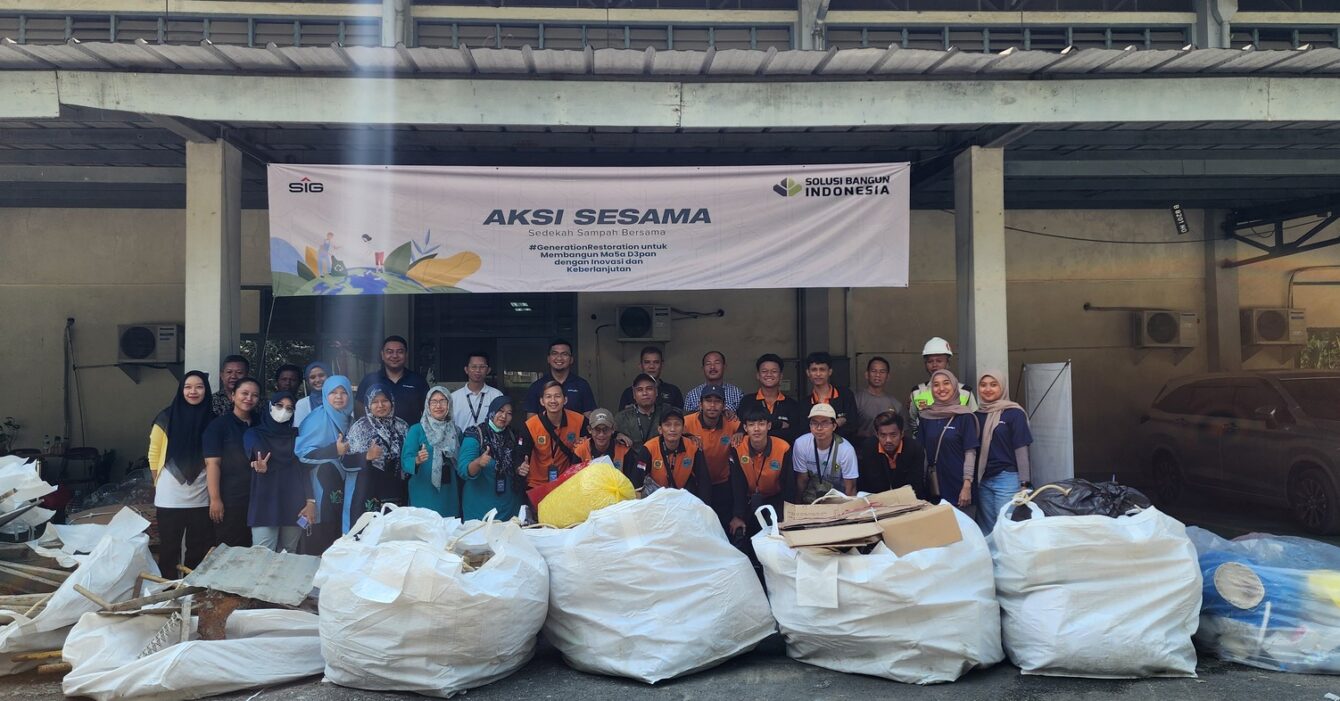Jakarta, 21 February 2025 – As Indonesia faces growing population and economic activity, waste management has become increasingly complex, demanding more efficient and sustainable solutions. Collaboration between governments, the private sector, and communities is key to developing effective, long-term strategies that reduce waste, support the circular economy, and maintain environmental balance.
According to the National Waste Management Information System (SIPSN), Indonesia generated 27.2 million tons of waste in 2024, highlighting the scale of the challenge. Addressing this requires innovative, collaborative approaches that reduce landfill-bound waste and convert it into more productive resources.
As a subsidiary of SIG and a leading player in the building materials industry committed to sustainability, PT Solusi Bangun Indonesia Tbk (SBI) has strengthened its strategic partnerships, particularly with local governments. These efforts include the use of refuse-derived fuel (RDF) as an alternative energy source and the implementation of community empowerment programs that support sustainable circular economy development.
Through its environmentally responsible waste management division, Nathabumi, SBI has partnered with 16 local governments to utilize RDF as an alternative fuel in cement production. Since 2020, SBI has processed 140,645 tons of RDF, substituting fossil fuels and providing a practical solution to urban waste challenges. As of 2024, this initiative has helped the company reduce carbon emissions by 16.6%, or 571 kg CO₂ per ton of cement equivalent, compared to its 2010 baseline, through optimized raw material and fuel usage.
SBI President Director, Asri Mukhtar, reaffirmed the company’s commitment to expanding collaboration with local governments and communities for impactful and sustainable waste management.
“We hope this strategic collaboration not only contributes to healthier environments for our communities but also supports the realization of a green economy and the acceleration of an environmentally friendly industrial transition,” said Asri Mukhtar.
In addition to RDF utilization, SBI promotes a culture of environmental care across all operational areas. Initiatives include energy efficiency at plants, rainwater harvesting for production processes, and the ‘Waste Donation Movement’, which engages employees in waste sorting and cooperates with local community-run waste banks. Since 2023, this program has become an annual event across all operational sites, aiming to build collective awareness and encourage active participation in responsible waste management.
In commemoration of Hari Peduli Sampah Nasional (National Waste Awareness Day) 2025, SBI calls for collective action in promoting more responsible and sustainable waste practices. The company will continue to innovate and collaborate to create solutions that not only benefit the environment, but also deliver value to communities and industry—aligning with its commitment to building a greener, more sustainable future.
